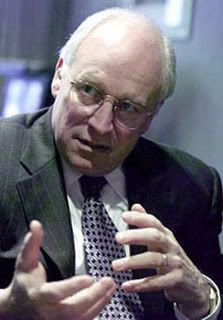Lawrence J. Korb of the Boston Globe:
First, Maliki knows that if the United States does not set a withdrawal date, the status of forces agreement, or even a memorandum of understanding, will not be approved by the Iraqi Parliament. A majority of the Iraqi Parliament has signed a letter to that effect. Iraq's elected legislators know that the overwhelming majority of the Iraqi people want the American forces out and believe that these foreign forces are actually causing much of the violence. The American people agree that the United States should have never invaded and want US forces to leave as quickly as possible. But, since Bush will not submit the agreement to Congress, he can ignore the wishes of the American people.Time to leave. Even al-Maliki agrees (and Der Speigel stands by its quote):Second, there were not that many foreign terrorists to begin with. Despite the administration's claim that we are fighting them (Al Qaeda) over there (in Iraq) so we do not have to fight them over here (the United States), the number of Al Qaeda loyalists who came into the country after the US invasion never numbered more than 2,000. Moreover, Al Qaeda in Iraq is an overwhelmingly Iraqi organization with domestic aims. When members began killing Iraqis and tried to force a rigid version of Islam on their Iraqi collaborators, the Iraqis turned on them.
Once the United States sets a date for a complete withdrawal, Al Qaeda in Iraq will lose what little support it has from the Iraqi people.
Third, with the rising price of oil, Iraq is awash in money and no longer needs US assistance to rebuild its war-torn infrastructure. When the United States invaded, oil was $25 a barrel. Now it is about $130. The Iraqi government now produces 2.5 million barrels a day, and with the contracts it has recently signed with Western companies, it soon will begin producing even more. This means that the Iraqis will be bringing in $100 billion to $200 billion a year.
Fourth, the Shi'ite dominated Iraqi government is not as concerned about the threat from Iran as the Bush administration. Many of Iraq's Shi'ite leaders lived in Iran during the regime of Saddam Hussein and see the Iranians as Shi'ite allies with whom they can and should have a close relationship - unlike Bush who sees the Iranians as the second coming of Nazi Germany or Stalinist Russia.
In the interview, Maliki expressed support of Obama's plan to withdraw US troops from Iraq within 16 months. "That, we think, would be the right timeframe for a withdrawal, with the possibility of changes."Good.Maliki was quick to back away from an outright endorsement of Obama, saying "who they choose as their president is the Americans' business." But he then went on to say: "But it's the business of Iraqis to say what they want. And that's where the people and the government are in general agreement: The tenure of the coalition troops in Iraq should be limited."
A Baghdad government spokesman, Ali al-Dabbagh, said in a statement that SPIEGEL had "misunderstood and mistranslated" the Iraqi prime minister, but didn't point to where the misunderstanding or mistranslation might have occurred. Al-Dabbagh said Maliki's comments "should not be understood as support to any US presidential candidates." The statement was sent out by the press desk of the US-led Multinational Force in Iraq.
A number of media outlets likewise professed to being confused by the statement from Maliki's office. The New York Times pointed out that al-Dabbagh's statement "did not address a specific error." CBS likewise expressed disbelief pointing out that Maliki mentions a timeframe for withdrawal three times in the interview and then asks, "how likely is it that SPIEGEL mistranslated three separate comments? Matthew Yglesias, a blogger for the Atlantic Monthly, was astonished by "how little effort was made" to make the Baghdad denial convincing. And the influential blog IraqSlogger also pointed out the lack of specifics in the government statement.
SPIEGEL sticks to its version of the conversation.
